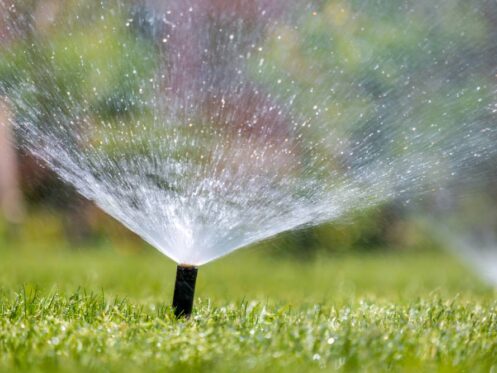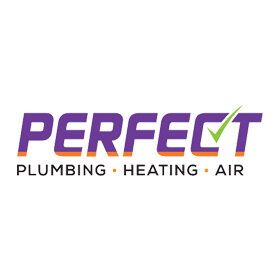Idaho summers offer warm weather and outdoor activities, but they also introduce unexpected challenges for your home’s plumbing system. The combination of rising temperatures, increased water usage, and environmental factors can place significant strain on your pipes and fixtures.
Many homeowners don’t consider the impact of summer heat on their plumbing until a problem arises. By understanding common heat-related issues and implementing preventive measures, you can avoid expensive repairs and ensure your plumbing system operates smoothly throughout the season.
Increased Water Usage = Extra Pressure on Pipes
The summer season often brings more showers, loads of laundry, and outdoor activities like watering lawns or filling pools. This surge in water usage can put significant stress on your pipes, joints, and outdoor plumbing systems, increasing the risk of leaks or bursts.
Key stress factors include:
- Lawn and Garden Irrigation: With sprinklers and hoses running frequently, your outdoor plumbing lines can experience wear and tear. Over time, small leaks in outdoor spigots and hoses can lead to larger issues.
- High Water Demand: Washing cars, filling swimming pools, or running multiple water-based appliances simultaneously can push your plumbing system to its limits. Hidden weaknesses, like small cracks in pipes, may go unnoticed until this additional pressure causes them to worsen.
What you can do:
- Regularly inspect outdoor hoses and irrigation systems for leaks.
- Avoid running multiple water-heavy appliances at the same time.
Ground Shifting in the Heat
Idaho’s dry, hot summers can lead to soil shifting or settling, particularly in high desert regions. This ground movement can impact your home’s underground water and sewer pipes, causing them to crack, misalign, or even collapse in extreme cases.
Older homes with aging pipes are particularly vulnerable since these systems were often built using materials less resilient to environmental pressures.
How to prevent damage:
- Monitor your yard for signs of shifting soil, such as uneven ground or cracks in concrete.
- Schedule a plumbing inspection to check for damage to underground pipes.
Water Heater Overload
It’s easy to assume your water heater works less during summer. However, higher temperatures combined with increased household activity can lead to overuse. Guests, frequent showers after outdoor fun, or washing loads of beach towels all add to the burden.
Furthermore, while summer’s warmer groundwater means your water heater uses less energy to heat water, sediment accumulation within the tank can gradually reduce its efficiency.
Warning signs of strain include:
- Uneven water temperatures
- Odd noises (such as popping or rumbling)
What to do:
- Flush your water heater to remove sediment buildup.
- Have a professional assess its efficiency and safety at least once a year.
Sewer Line Stress
Summer promotes rapid plant growth, and tree roots naturally seek moisture during hot, dry conditions. Unfortunately, your home’s sewer lines can become an appealing water source. Over time, roots can infiltrate aging plumbing, causing blockages and potentially severe structural damage.
You may notice:
- Slow drains
- Gurgling sounds in toilets
- Unpleasant odors near your yard or drains
Additionally, heavy downpours during Idaho’s occasional summer storms can lead to sewer backups, especially if your system is not equipped to handle sudden water surges.
To reduce risks:
- Look for signs of root invasion and slow drainage.
- Schedule a professional sewer line inspection before issues become more serious.
Garbage Disposal & Kitchen Drain Problems
Summer barbecues and cookouts often result in more food waste. Common culprits like cornhusks, melon rinds, and grill grease can easily clog your garbage disposal or kitchen sink.
Tips to keep your kitchen plumbing safe:
- Avoid throwing fibrous produce or grease down sinks.
- Set up a compost bin for food scraps.
- Run cold water while using the garbage disposal to help clear debris.
Signs Your Plumbing System Is Under Stress
Recognizing early warning signs of plumbing issues can prevent expensive repairs down the road. Keep an eye (and ear) out for the following symptoms of a stressed plumbing system:
- Drop in Water Pressure: A sudden drop can indicate hidden leaks or blockages.
- Unusual Noises: Whistling or banging pipes may indicate pipe movement or air in the system.
- Unexpectedly High Water Bills: Sudden increases in your water bill could point to leaks or inefficiencies.
- Odors: Bad smells from drains or around your yard often indicate sewer line issues.
- Persistent Clogs: Slow-draining sinks and tubs require immediate attention.
How to Prevent Summer Plumbing Issues
Taking proactive steps can not only reduce the risk of plumbing problems during the summer months but also save you money in the long run.
Top preventative measures for homeowners:
- Inspect outdoor systems regularly: Check spigots, hoses, and sprinkler systems for leaks.
- Flush your water heater: Removing sediment keeps it efficient.
- Limit what goes down the drain: Be mindful of kitchen waste and avoid grease build-up.
- Schedule a mid-year plumbing inspection: A professional plumber can identify hidden issues early.
- Know your main shutoff valve: This could save your home from water damage during an emergency.
Take Control of Your Plumbing This Summer
Your plumbing system is essential in keeping your household running smoothly, and summer heat can put it to the test. By understanding common challenges, keeping an eye out for warning signs, and staying proactive, you can protect your home from inconvenience and costly damage.
Unsure where to start or need a professional inspection? Contact Perfect Plumbing Heating & Air today to keep your plumbing stress-free all summer long. Schedule your inspection now and protect your home with the expertise you can trust!


